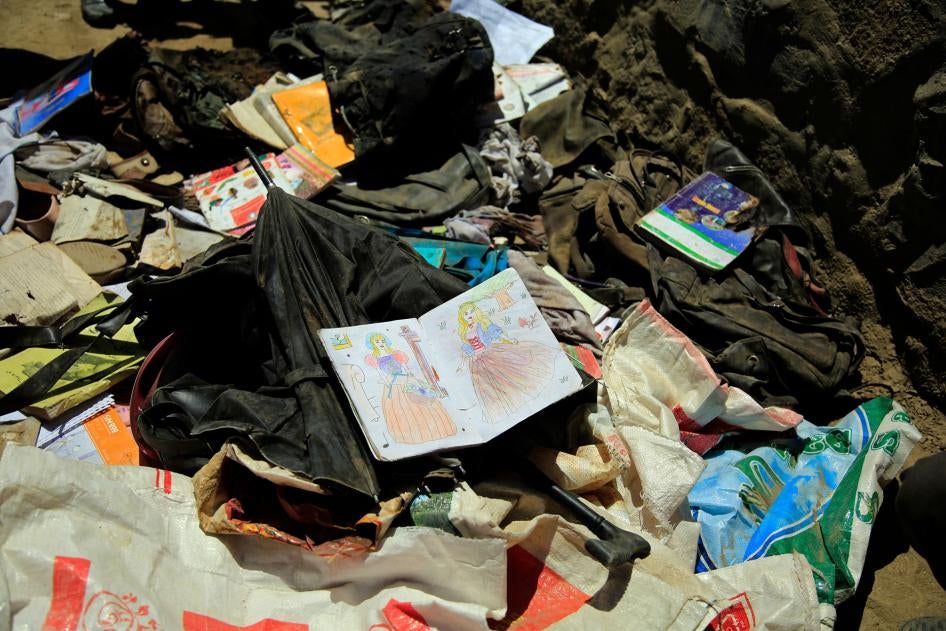Life and death issues are on the table in Afghanistan. The international community is negotiating with the Taliban over the country’s future, and people across Afghanistan are waiting to find out what their lives are going to be like. For every Afghan family, the question of whether their children will be able to continue their schooling hangs in the balance. This is a critical moment for education in Afghanistan.
Afghan parents have reasons to fear. The Taliban’s near total denial of education for girls and most education for boys when they were last in power was one of the many egregious human rights abuses cited by the U.S. and its allies when they ousted it in 2001. The new Afghan government and its foreign supporters cited the rehabilitation of its school system as a chief success.
Students and teachers in Herat, Kandahar and Kabul told me how eager they were to study and teach; parents shared how eager they were for their children to learn. “I want my daughters to be something in the future,” a mother sending all five of her daughters to school told me. “I regret not being educated myself.”
But even as educational opportunities opened, Afghanistan remained a country in conflict. Women told me that their hopes were tempered by the sheer lack of schools nearby, corruption, insecurity and targeted attacks.
Still, millions kept attending schools and universities, and women kept teaching. But as Taliban forces advanced in recent years, few among them allowed girls to attend school past puberty; others banned girls’ schools entirely.
The attacks on schools by all sides during Afghanistan’s long armed conflict exemplify tactics that brought countries together to establish the Safe Schools Declaration, a political commitment to protect education in war. Currently, 111 countries, including Afghanistan, have endorsed the declaration.
As reports trickle in of restrictions on girls’ education and women’s ability to work, the international community should help protect the right of all Afghans to education under international law and remind the Taliban of those obligations.
Donors should come up with a plan to provide international assistance, on which Afghanistan’s education system is utterly dependent. They should pressure the Taliban to allow all schools to operate, and to allow girls and women to attend at all levels, without intimidation or threats. Donors should also continue to assist nongovernmental groups that provide crucial supplemental support for education and run schools outside the government system.
Second, the international community should impose hard consequences for attacks on education. International accountability for crimes against children overall, and specifically attacks on education, is notoriously weak, especially in times of crisis when other crimes tend to take priority. But this is the time to take action.
The UN Security Council actively monitors attacks on schools and teachers, and the use of schools for military purposes, including in Afghanistan. The Security Council has the authority to refer parties to conflict for sanctions and to the International Criminal Court. It should use that power.
The International Criminal Court’s Office of the Prosecutor has already signalled its intention to investigate attacks on education buildings by all parties in Afghanistan as a war crime and the Taliban’s denial of education to girls as a crime against humanity. These priorities should remain front and centre.
At its upcoming session, the UN Human Rights Council is rightly considering creating an international monitoring and accountability mechanism for Afghanistan. It should address violent attacks on education by any party, military use of education buildings, restrictions on school and university attendance, and the effect of any Taliban policies on education. The Syria Commission of Inquiry’s approach to its mandate offers a useful example: it has addressed these issues in virtually all of its reports.
Third, the international community should live up to its promises to educate Afghan refugees wherever they are. Shamefully, half of all refugee children around the world are out of school.
Sept. 9 is the International Day to Protect Education from Attack. As countries around the world begin their new school years, they should remember Afghanistan’s children. As a girls’ school principal told me in Kandahar: “Education is the backbone of the country. If the backbone is broken, what will be the country’s future?”









